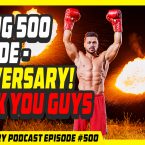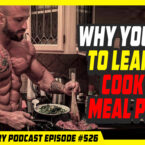Sign up to Get FREE Steroids, SARMS, Peptides eBooks
Everyone loves the Summer because it's their chance to show off their winter gains. And let's face it, you wouldn't be reading this if you didn't love lifting weights. Everyone loves getting under a bar and pressing it or doing a few sets of curls. But cardio and dieting aren't going to be on anyone's favorite list of activities anytime soon. This article will teach you how to do the right kind of Cardio in the Spring, so you can maintain a ripped physique for the Summer with minimal effort. That''s right, minimal effort!
Of course, Cardio isn't the only thing that gets you ripped - strength training can also have a profound impact on fat loss. Because you expend calories during your strength training workouts, it directly increases your potential fat loss. And because it also raises caloric expenditure by virtue of increasing your muscle mass (and resting metabolic rate), it also has an indirect effect on fat loss. Some nutritional supplements, notably those that contain ephedrine analogues that stimulate the beta-2 receptor, can actually help you lose fat and build muscle simultaneously.
And certain nutritional supplements can greatly aid fat loss through a variety of mechanisms, including appetite reduction, increased fat oxidation, and raising your resting metabolic rate. Just how important are nutritional supplements to burning fat? It's doubtful that any professional bodybuilders would even think about stepping on stage without an arsenal of the most potent fat burners available.
But even with the best supplements in the world, you're still going to need Cardio to look great in the Summer. Cardio impacts fat loss through increased fat mobilization (pulling stored fat into the energy system) and oxidation (using it as fuel).
Generally, cardio falls into two camps:
- HIIT (*high intensity interval training)
- LILD (*Low intensity long duration)
Low intensity long duration cardio resembles traditional endurance training think "high school cross country". A general prescription for fat loss would be 40-60 minutes of continuous exercise at 65-70% intensity, done five times weekly. High intensity interval training, on the other hand, is more akin to the type of sprint work done by short distance runners brief intervals with rest periods between them.
Generally speaking, when you're at 68-87% of your maximum heart rate, you\'re burning the highest percentage of bodyfat as compared to muscle glycogen. At 59-76% you're in the aerobic training zone, training your cardio-respiratory system.
The advantage to the longer duration type of cardio is the low impact factor: cycling, running, rowing, etc. for long distances can expose the athlete to less potential for injury. There's no doubt that this kind of training will burn fat.
However, numerous studies have shown that HIIT style training can induce similar increases in skeletal muscle carbohydrate and lipid (fat) oxidation, with no differences between groups. Here, we're talking about training above 85% of your maximal heart rate. But the interesting thing about this style of training is that after the exercise if finished, Exercise Post Oxygen Consumption (EPOC- a measure of how much fat your body is still burning, post workout) is higher in HIIT groups. In other words, you'll burn fat for longer, even after you stop exercising.
This is great, because more bodyfat is burned. What you don't want, is to burn carbohydrates, right? That means it's better to keep carbs relatively low, so your body dips into fat stores to provide energy for your workouts. It also helps to make sure your muscles are insulin sensitive, meaning they absorb more carbs, thereby allowing less to be stored as fat. Insulin sensitivity helps determine how much fat you lose and how muscular you are. High insulin levels are counterproductive to your fat loss goals. Exercise and cardio can both improve insulin sensitivity, as can nutritional supplements.
So even if you're doing your cardio, and eating a good diet, a good thermogenic supplement and a good insulin control supplement, can both help you achieve your goals more quickly. And both of those supplements will also make it much easier to maintain your physique throughout the Summer, with much less effort which is the entire goal of this article: getting you ripped in the Spring so you can just maintain it for the Summer.
And here's another tip for maintaining your low body fat: EPOC favors leaner exercisers meaning the more muscular and less fat you already are, the more calories you will burn both during and after cardio. A 2006 study conducted in Canada with two groups (under 16% body fat and over 25% body fat) cycled at 60% intensity for half an hour. Scientists noted that cortisol was more elevated in the fat subjects and growth hormone gained a higher elevation in the thinner subjects. They also noted a greater EPOC for the more muscular subjects. This means after the exercise was over, the more muscular subjects continued to burn fat at an elevated rate compared to their fatter counterparts. This means if you spend your Spring doing enough cardio, and getting lean, the time and effort you'll need to stay ripped during the Summer, will be substantially less.
You need to do your Spring cardio.
But what type of cardio should you do? The short, high-intensity stuff, or the longer duration low intensity type? Here's some final guidelines to help you choose:
- If you're an older athlete or have a lot of injuries, low intensity cardio is a better choice.
- If you are on a very low calorie diet (VLCD), you may not be able to generate enough intensity to sustain HIIT training for very long. In this case, low intensity cardio is a better choice.
- If your diet is extremely low in carbohydrates, low intensity cardio is a better choice.
- If you\'re strapped for time, then HIIT style cardio is a better choice.
- If you\'re interested in maximal carryover into your strength training, then HIIT cardio is a better choice.
- If you\'re looking for a change of routine, or are easily bored, then alternating between the two types can keep you motivated.




![IronOverload.io Hardcore 67 - [2024] Anadrol (Oxymetholone) to Bulk anadrol](https://www.elitefitness.com/articles/wp-content/uploads/2024/05/IronOverload.io-Hardcore-67-2024-Anadrol-Oxymetholone-to-Bulk-145x145.jpg)
